S’pore startup Circular raises US$7.6M – investors include PropertyGuru, Carousell founders

Consumer electronics subscription-based marketplace Circular announced today (October 9) that it has closed its seed funding round of US$ 7.6 million today.
Led by AirTree Ventures, the funding round saw participation from YC Continuity Fund, Global Founders Capital, Partech Ventures and January Capital. The round was also backed by notable angel investors, including the founders of PropertyGuru, Funding Societies, StashAway, Carousell and Nutmeg.
The latest funding round brings the total valuation of Y Combinator-backed Circular to US$30 million.
With the new injection of funds funds, Circular is expanding its offerings in Singapore, further drilling into product market fit.
It also plans to double down on its expansion in Australia, as well as expand its B2B offering, Circular for Business, to address the underserved startup and SME segments in both markets.
The startup has grown threefold in the last 12 months, and plans to grow another threefold across Singapore and Australia in the coming year.
Electronics in a circular economy
Founded in Singapore in 2021 by Nick Ramsay, George Oliver, Pantha Roy and Yaniv Bernstein, Circular offers customers subscriptions for a wide range of premium tech devices with free damage protection that covers up to 90 per cent of the cost of repair.
The consumer electronics industry is large and varied, with approximately 50 million premium tech devices sold across Asia Pacific in 2022. These products are increasingly expensive, but they are also chronically under-utilised, representing a huge addressable market for Circular and opportunities for disruption as the first-mover tech subscription startup in the region.

Through a flexible and affordable monthly subscription, Circular customers access the latest tech gadgets at a fraction of the cost in a sustainable way. For instance, subscribers can save up S$955 on an iPhone 15 Pro Max 256GB as compared to purchasing the phone outright from Apple, with no device protection.
Adding to its core categories of tech gadgets — which comprises refurbished as well as brand-new phones, tablets and laptops — Circular has also recently begun offering popular gaming products as part of its Singapore catalogue.
The problem of tech device underutilisation is huge, and Circular aims to help curtail it with our subscription model. By keeping products in use for longer – and keeping precious materials out of landfills – we hope to gradually shift patterns of consumption and reduce our collective burden on the environment.
What’s most exciting for us is that we see many of our customers quickly come back for second and even third devices, indicating they’ve moved their device needs entirely to subscriptions and that they’re fully embracing the circular economy.
– Nick Ramsay, CEO and co-founder, Circular
Featured Image Credit: Circular
Also Read: AirPods from $9/mth: S’pore startup Circular reshapes tech ownership with flexible subscriptions
Cooking for a cause: foodpanda launches Pau-Pau Breakfast Club to tackle food insecurity
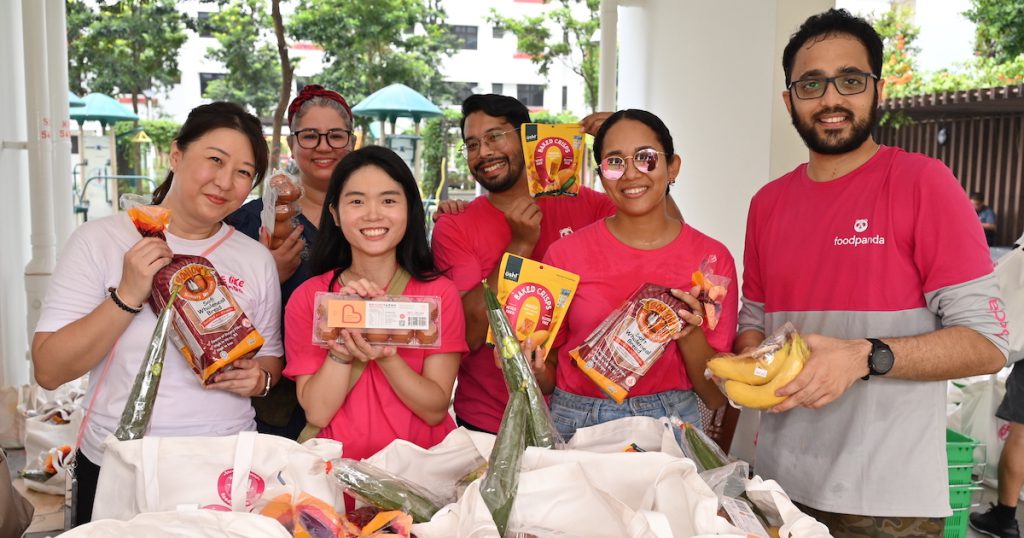
foodpanda Singapore launched on Saturday (October 7) a new initiative called Pau-Pau Breakfast Club, which aims to tackle food insecurity and promote healthier eating.
The event was organised in partnership with the Nee Soon East Grassroots Organisations (GROs) and Singapore Red Cross Young Hearts’ programme, which consisted of a cook-along workshop and a food distribution drive.
The cook-along workshop was held and led by nutritionist Charlotte Mei, who shared the importance of having nutritious and healthy meals that can be achieved without breaking the bank.
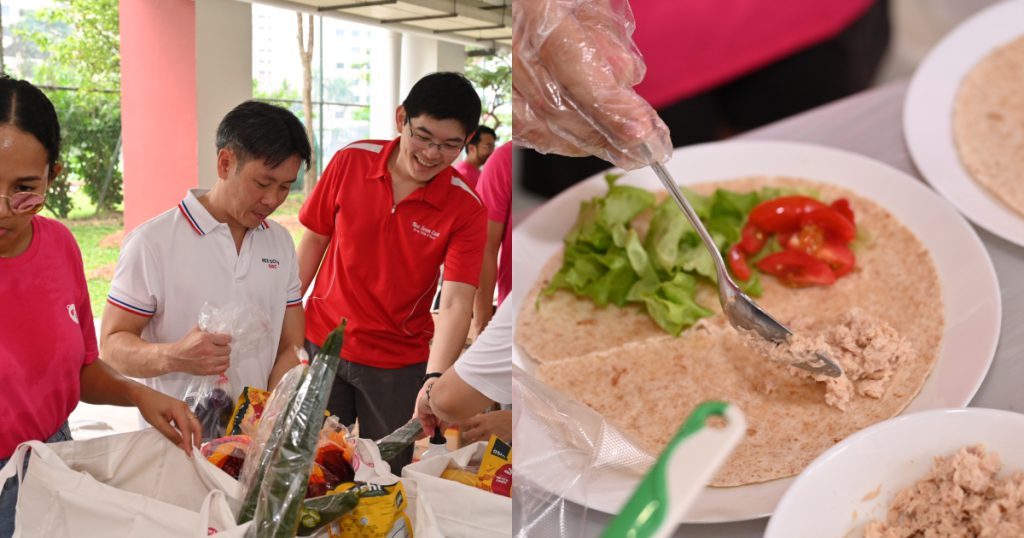
Around 30 residents from the Nee Soon East area participated in the workshop, including young families, couples, and the elderly. During the workshop, participants received valuable tips on obtaining affordable and nutritious ingredients for healthy meals. They also had the opportunity to debunk common misconceptions that people often encounter when planning their meals.
Participants also actively engaged in a cooking segment where they prepared breakfast wraps using readily available supermarket ingredients. This meal was not only healthy and easily customisable, but also a hassle-free option. In a bid to minimise food waste, residents were encouraged to take any leftover ingredients home with them.
Fighting food insecurity in Singapore
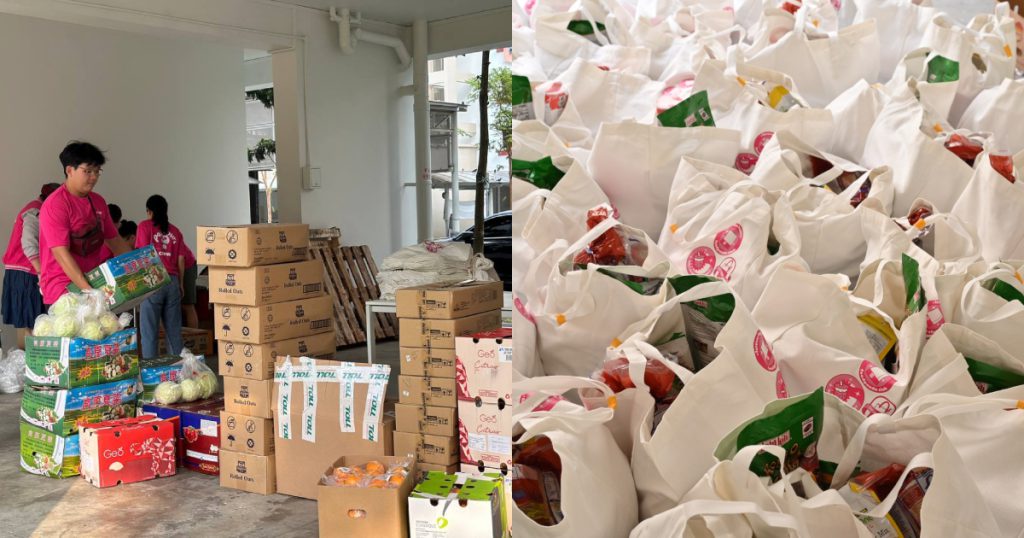
According to the 2020 Hunger report by The Food Bank, one in 10 Singaporeans experienced food insecurity at least once every 12 months and often does not receive enough support.
In addition to the challenge of acquiring sufficient food, some of these households are given food that does not align with their specific needs, resulting in both food wastage and unhealthy eating habits.
Collaborating with over 50 volunteers and foodpanda delivery partners, a total of 200 food packs were distributed to elderly and low-income residents residing in the Nee Soon East area. Distinguishing itself from typical food drives, this initiative allowed residents to select their preferred food packs, which included a combination of fresh produce and pantry staples.
Lawrence Wen, CEO of foodpanda Singapore, expressed his unwavering commitment to addressing this issue. He emphasised that given foodpanda’s focus on food and groceries, he strongly believes that everyone should have access to fresh, nutritious food tailored to their taste preferences.
Through pau-pau breakfast club, we hope to respect individual preferences, tackle food insecurity in how our residents would have healthier choice, [and] provide them with quality, fresh groceries in bulk.
– Lawrence Wen, CEO of foodpanda Singapore
Featured Image Credit: foodpanda Singapore
Also Read: Shop and save: foodpanda partners DFI, yuu to expand grocery offerings with under 1hr delivery
MRANTI’s new CEO is former MDEC chairman & prolific writer Dr Rais Hussin

MRANTI (Malaysian Research Accelerator for Technology & Innovation) has announced the appointment of Datuk Wira Dr Rais Hussin Mohamed Ariff as its new CEO.
Effective October 9, 2023, Rais will be taking over from the current Acting CEO and Chief Commercial Officer, Khairil Anuar Sadat, who had filled the vacant position left by former CEO Dzuleira Abu Bakar.
According to a press release from MRANTI, as CEO, Rais will be responsible for driving the strategic vision of MRANTI and overseeing its day-to-day operations.
The release also stated that Rais has over 28 years of experience and a strong track record of leadership in various sectors, particularly in the fields of telecommunications, technology, and entrepreneurship.
A prolific portfolio
Rais’ past experiences include roles at Telekom Malaysia, MCI WorldCom Malaysia, Teleglobe Canada, Axis Technologies, and GoldNet Resources, his LinkedIn biography shows. Previously, he was the Chairman at MDEC (Malaysia Digital Economy Corporation).
Here, it’s also highlighted that Rais was the one responsible for overseeing the preparation of the first election manifesto to “ever trigger a change of government in Malaysia”.
Described as a “visionary strategist and prolific writer” by MRANTI on LinkedIn, Rais’ passions are said to include disruptive innovation, big data, app-driven economies, algorithms, and AI.
His CV states that he has written more than 200 articles, technical reports, published conference abstracts, and papers tabled within international organisations.
Accelerating impactful ideas
For the uninitiated, MRANTI is Malaysia’s central research and innovation commercialisation agency, with the goal of accelerating ideas to market.
Headquartered at MRANTI Park, a 686-acre 4IR (Fourth Industrial Revolution) innovation hub in Kuala Lumpur, it supports the growth of smart manufacturing, biotech, agritech, smart city, green tech, and enabling technology clusters.
According to MRANTI’s website, it has the solutions for “What’s Next”.
“What’s next is for the seeds of ideas to grow and make an impact,” it reads. “MRANTI is Malaysia’s answer to fast-tracking these ideas to market and transforming them into game-changers that stand tall amongst the world’s best.”
On Rais’ LinkedIn, it says that the new CEO “has a passion for bringing together the best possible resources and talents in pursuit of a prosperous, just, and dynamic Malaysia.”
His new role as the CEO of MRANTI will be able to help him do just that.
Also Read: 5 reasons why drone deliveries have yet to fully take off in M’sia
Featured Image Credit: Datuk Wira Dr Rais Hussin Mohamed Ariff / MRANTI
With 3 eateries in Melaka, this serial foodpreneur’s ethos is all about serving “real food”
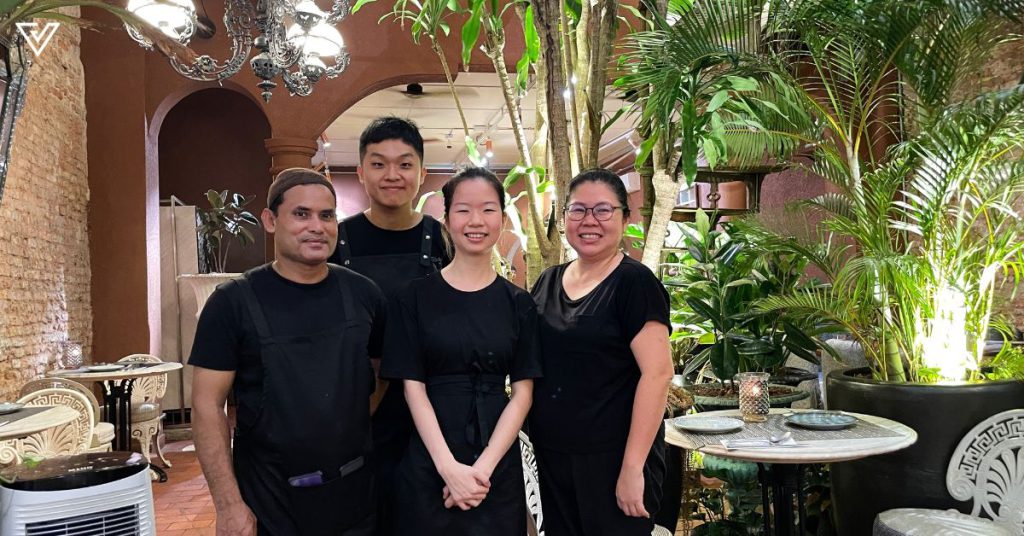
A relatively new Asian fusion eatery has graced the Melakan food scene. Paying homage to its location Jalan Kampung Hulu, this spot is called Campung O’oloo—the British transliteration of the street.
If you’re a foodie in Melaka, you must have tried at least one of its founder’s other haunts, Eat at 18 and The Curly Tail. I myself have patronised both of Eli’s restaurants.
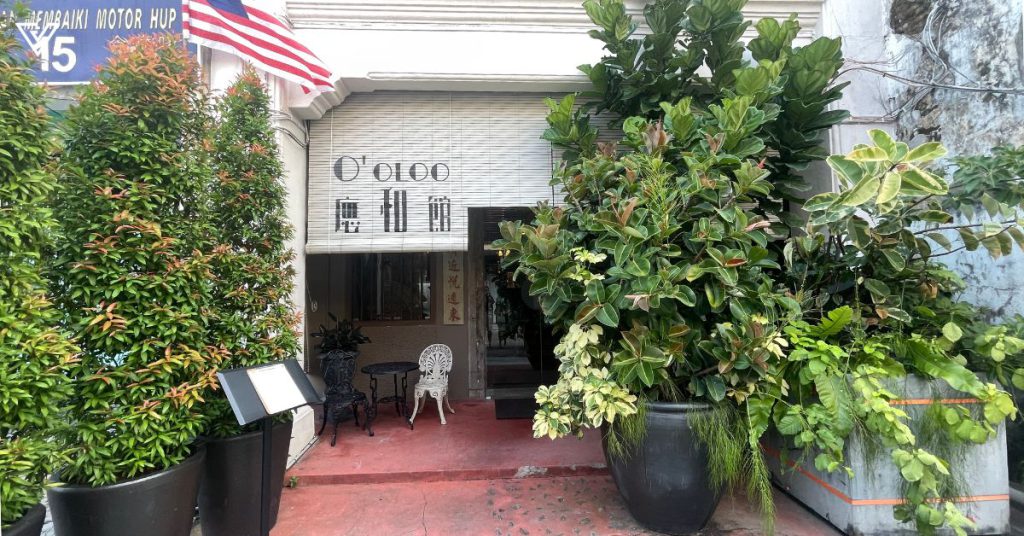
If you weren’t in the know of her serial foodpreneurship through word of mouth, chances are you wouldn’t really be able to tell that the businesses are connected, as Eli appears to be a rather private person.
But visiting Campung O’oloo in early September for dinner with my family, I was able to meet up with the founder and learn about her entrepreneurial journey.
Before sitting down for a chat, though, she gave me a brief tour of her new space. She revealed it had been quite expensive to renovate the entire space, considering how old the building is.
Prior to becoming a restaurant, the space had been a huay kuan (meaning clan association). My mum told me that she used to visit the location to receive scholarships.
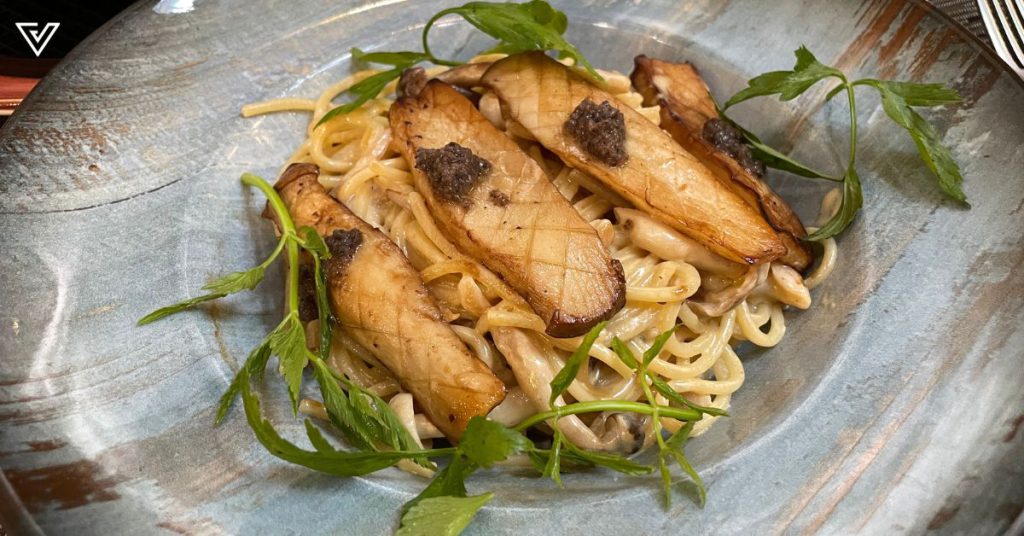
Some souvenirs from its storied past have been left by the association, and Eli used this as décor upstairs, mixed in with elegant and modern pieces.
It’d be easy to dismiss the spot as another Instagrammable eatery, designed with aesthetics as a priority, but a conversation with Eli would reveal otherwise.
Authenticity at its core
Back in the 90s, long before the existence of Eat at 18 and The Curly Tail, Eli, who had long been a foodie, actually ran a cafe serving Western food.
“After a few years, I felt like we needed to learn more, but there were so many things I didn’t know,” she shared.
At the time, workshops and online classes weren’t a thing yet. Eli said that people used to be a lot more protective over their knowledge and interests, and weren’t as keen on sharing their knowledge.
To pick up recipes and skills, you simply had to start from the bottom, such as being a helper, server, or dishwasher.
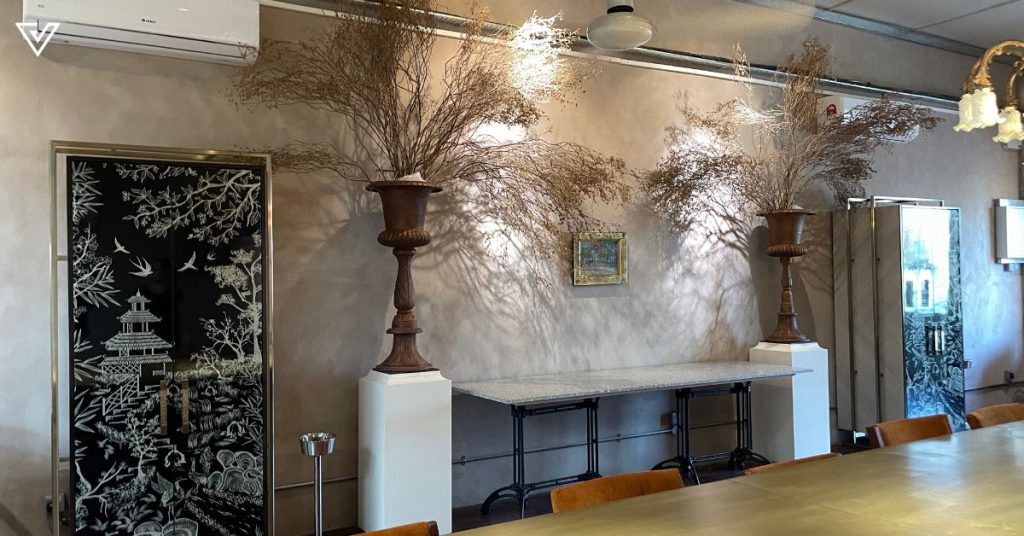
So, she closed up shop and went to England to study baking. After coming home from England, she set up Eat at 18, then The Curly Tail a few years later.
The way she operates these restaurants is quite different compared to how things used to be.
“My ethos is—I’m the lazy kind,” Eli admitted with a bright laugh. “So, I teach. I teach others, so they can do it in my place.”
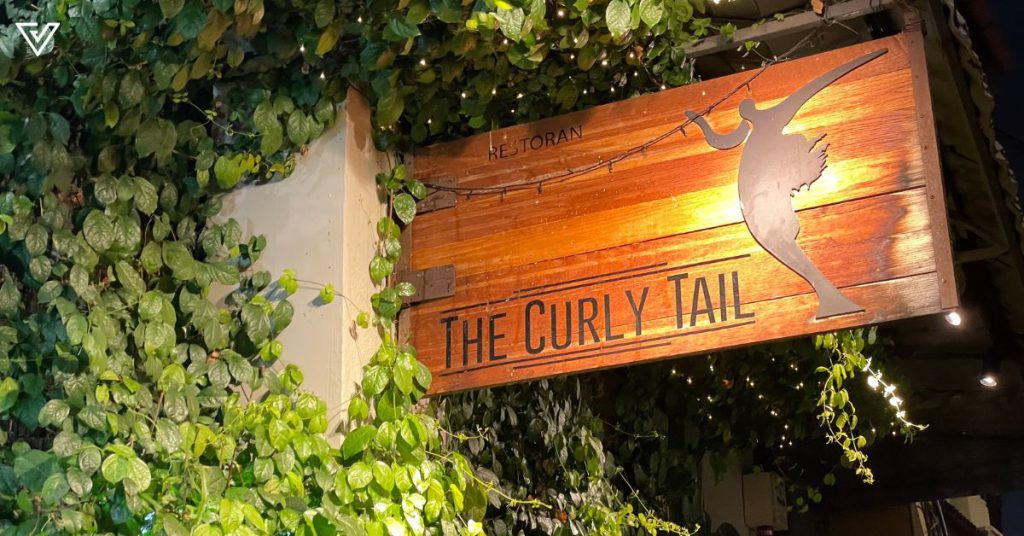
The rest of our conversation would prove this mindset. Eli would reiterate the importance of passing down knowledge, and as much as she jests, the reasoning goes beyond so-called laziness.
Rather, it’s about preserving authenticity.
“You have to teach them. You’ll get old eventually and if you don’t teach, things will get lost,” she said at one point.
For instance, take the case of Campung O’oloo’s oxtail soup. My dad, a man who’s not necessarily ripe with praises when it comes to food, had marvelled at its authentic and supposedly nostalgia-packed taste.
Relaying this to Eli, we learnt that this soup comes with a story that might just be the origin of Eli’s modus operandi.
Apparently, she had learnt the recipe from an old uncle who used to work at that Western café she opened in the 90s. At the time, she hadn’t been keen on learning the recipe, believing that cooking it was under the uncle’s jurisdiction.
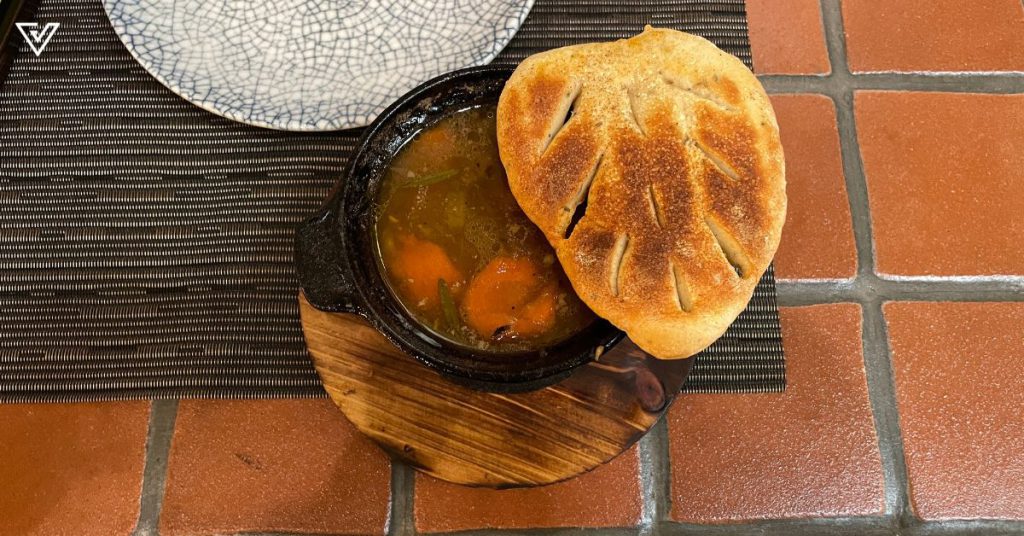
But he insisted, so she did.
The uncle has since passed, so if he hadn’t been so persistent, this authentic recipe would’ve been gone, and my dad wouldn’t have been enjoying such a hearty bowl of oxtail soup.
Empowering the next generation
When asked about why she decided to start new brands, she answered by calling over Campung O’oloo’s head chef, Jason, a young 20-something man who joined us for the rest of our conversation.
“This is why I open new restaurants—because they’re all working very hard,” she explained. “I need to give them more opportunities to grow.”
But, if that’s the case, I wondered why talents such as Jason himself didn’t want to just come out and start their own businesses.
To that, Eli said, “At this point, this can be considered his own store.”
Jason agreed, revealing that youngsters like himself working at Campung O’oloo (and Eli’s other establishments) aren’t there just to clock-in and clock-out—in fact, they are essentially partners of the business.
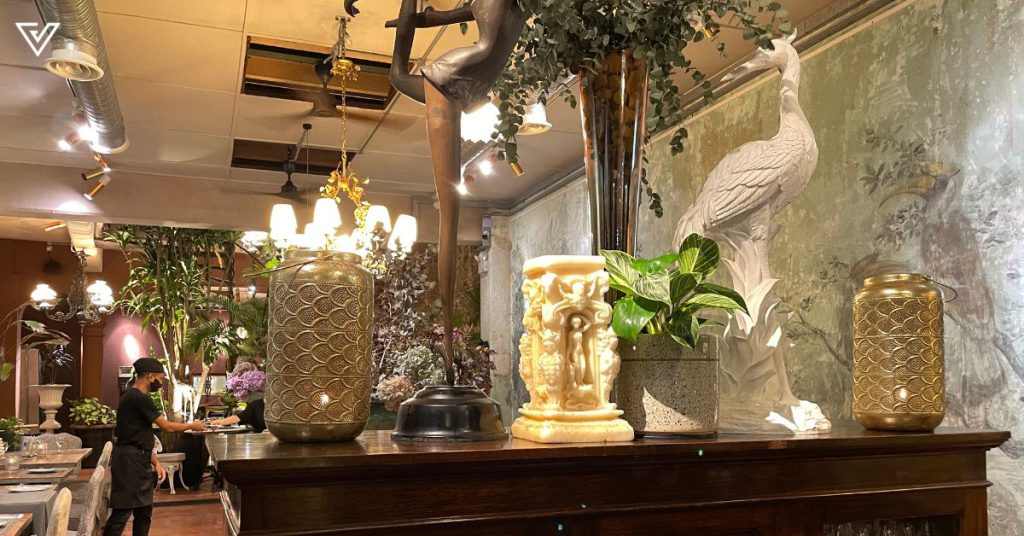
As such, they have more motivation and ownership over what they do.
“I saw a future here,” Jason explained his decision to join the team. “In the past, I didn’t really know what to do, but after learning. Yes, this career path is difficult, but I can see my future.”
Jason pointed out that many young people nowadays want to be their own boss, but if that’s the case, who’s left to actually do the work? That’s why he believes a system like Eli’s in place where he can grow to become a partner is better for him.
But before all these youngsters joined Eli’s team, she had started Eat at 18 as a small venture where she was just concerned about making her own ends meet.

Somehow, though, she got the opportunity to open up her second restaurant, The Curly Tail, alongside a couple of business partners.
Here, she learnt that when a business is small, you become quite limited in what you’re able to explore as well as the talents you attract, since there are no opportunities for growth.
So, she started to grow the business bit by bit and was able to see a positive outcome.
And now, she wants to give the next generation a taste of that.
“You guys are young, you still have so much further to go,” Eli expressed. “For me, at this point, how much more can I do? I can’t always be hogging the spot. Once you’ve hit the peak, you need to walk downhill.”
Respecting the food
When asked about what sets their restaurant apart from all the many other eateries in town, Eli shared that it’s all about their core principle of giving people real, genuine food with a real, genuine taste.
This means using real quality ingredients, which might result in higher costs and more expensive dishes, but that’s something Eli is willing to take a risk on, believing that the more educated consumer of today would be happy to pay the price.
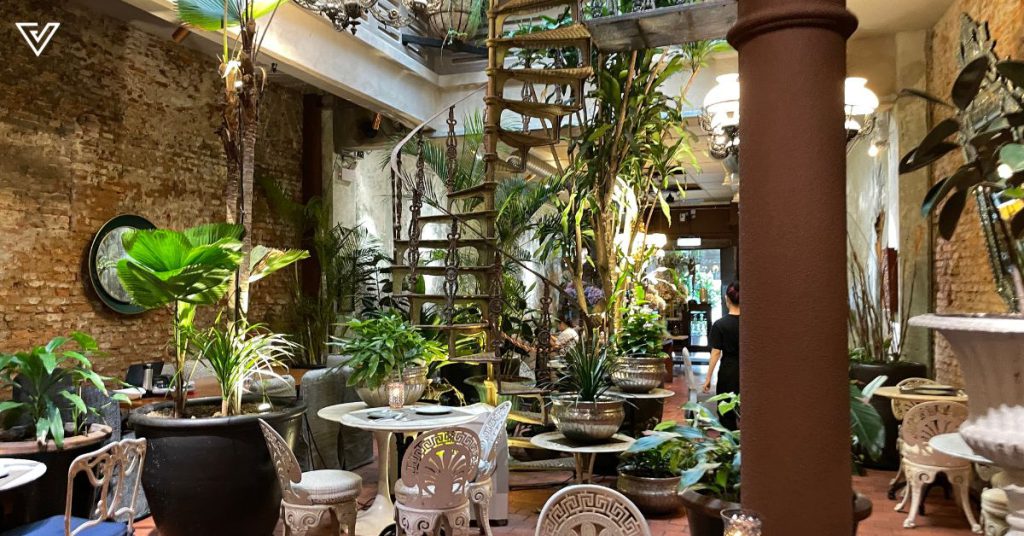
“Customers will be able to tell the difference,” she said. “They will tell, and they will speak for you. What they say is more than what I say—them saying one word is better than me saying a whole paragraph.”
Of course, the nice environment that Eli tends to provide at her eateries also helps, but it ultimately comes down to the food’s quality.
I’ve dined in a fair number of places in Melaka, and I honestly can say that the one thing that does stand out about Campung O’oloo to me is its dedication to serving quality food—from Eli to Jason to her whole team.
Not just another Instagram-worthy spot in Melaka, beneath the surface of Campung O’oloo is an intense commitment to preserving the love for quality flavours, something I can honestly say isn’t actually easy to find in the historic town where good looks often come above good food.
“Treat your food seriously. Give people real food. Don’t try to cheat and cut corners,” Eli had said. “That’s it.”
It really is, isn’t it?
Also Read: Before fixing your iPhone with fake parts, here’s what this M’sian biz wants you to know

